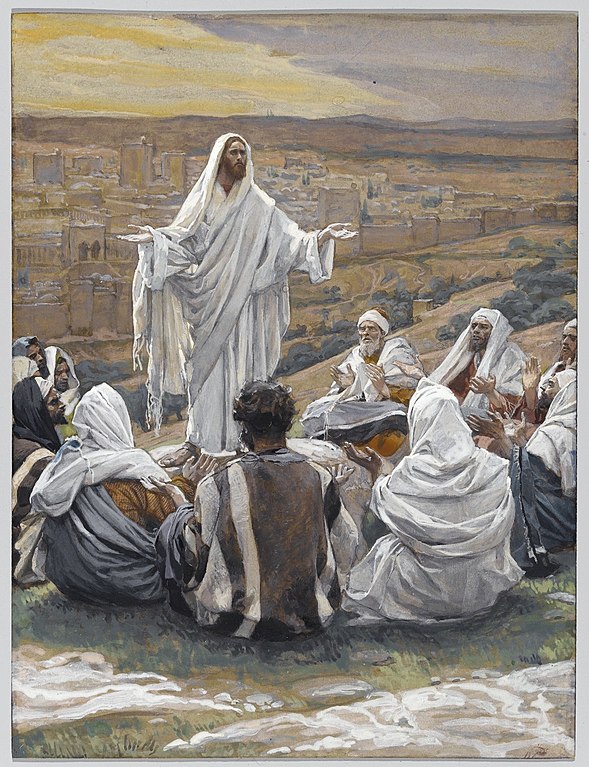08 February 2024
The Lord's Prayer | Year of Prayer 2024
By Joey Belleza, PhD (Cantab.)
In the past four reflections, we reviewed the four parts of prayer as understood by Saint Thomas Aquinas. Now, in light of those reflections, we will look briefly at the prayer taught by Christ himself, the Lord’s Prayer, showing how the four parts are present, whether implicitly or explicitly, in this most fundamental of Christian prayers.
Oration: “Our Father…” The opening cry of the prayer immediately places the man Jesus (and with him, all of us), in the status of children before God. This is a first and general expression of our humility and our complete dependency on the Father and Creator of all things.
Thanksgiving: “…who art in heaven.” Here we further recognize God’s greatness by specifically acknowledging his place above us in heaven.
Intercession: the notion of intercession is perhaps not as explicit as the others, but is nevertheless present in the fact that this prayer is always made in the second person plural: “Our Father.” Thus we are meant to pray this together, as a unified Christian community for ourselves and for one another.
Petition: The Lord’s Prayer is famously marked by a series of seven petitions, in which we ask God for the most basic of temporal needs as well as the needs of our eternal soul.
As we can see, all four parts are contained in a nutshell in the very words of Christ. Thus when we pray with all four parts in mind, we are continuing our imitation of the Lord Jesus himself, who taught us how pray with these very words.
Since petition is indeed the most central aspect of prayer, a further look into each the seven petitions of the Lord’s Prayer will help us appreciate this most archetypal of Christian prayers.
“Hallowed be thy name”: Just as the first two of the Ten Commandments are tied to the glory of God and his name, here we ask not so much that God add greatness to his name, for nothing more can be added to the infinite God. Rather we ask that his name might be magnified ever more in human hearts. This petition is, essentially, a request for the diffusion of the Gospel message to all, and a preparatory step for the next petition.
“Thy kingdom come”: Here we express an eschatological hope in the final consummation of all creation into the original order and harmony intended by the Creator.
“Thy will be done on earth as it is in heaven”: Building more upon the previous petition, we ask not only for harmony within creation or in the natural order. We also ask for the participative conformity of the order of nature with the order of grace.
“Give us this day our daily bread”: In the Gospel of Matthew, the phrase “daily” is actually rendered with an interesting term which is unique in the entire Bible. The bread is described with the Greek term epiousion, in Latin supersubstantialem: this bread is “super-substantial.” More than our regular requirement for sustenance, Matthew is pointing us to a bread whose substance is higher than the mere bread we need for bodily survival. Indeed, the Eucharistic echo of this word rings clear in Matthew’s Greek, and it is therefore fitting that we pray the Lord’s Prayer before receiving the true supersubstantial bread at Holy Communion.
“Forgive us our trespasses as we forgive those who trespass against us”: If the previous petition points us to the Holy Eucharist, this one points us to the Sacrament of Reconciliation. As the Lord says in another place, “if you are presenting your sacrifice at the altar, and there you remember that your brother has something against you, leave your sacrifce there before the altar and go; first be reconciled to your brother, and then come and present your sacrifice” (Matthew 5:23-24). If we must be reconciled to one another before completing our offering, how much more should we be reconciled with God before receiving Him in the Blessed Sacrament?
“Lead us not into temptation”: This petition can sound strange to our ears. Is not God the one “who can neither deceive nor be deceived,” as the First Vatican Council reminds us? Is not Satan the one whose name means “tempter”? The notion that God might lead into something bad, as implied by this verse, is so difficult that even Pope Francis ordered a new Italian translation of the Our Father which reads “do not abandon us to temptation.” Yet even this rendering is not free of problems. Is not God, as the Psalmist tells us, the one who will not abandon us even if our parents leave us orphaned (Psalm 27:10)? The full meaning of this petition is only understood in concert with the seventh and final petition.
“Deliver us from evil”: This petition is linked to the previous one by a parallelism characteristic of biblical rhetoric. Verses like “The righteous flourish like the palm tree, and grow like a cedar in Lebanon” (Psalm 92:12) or “Many waters cannot quench love, neither can floods drown it” (Song of Songs 8:7) contain two phrases whose meanings run together but are expressed in different ways. When God delivers us from evil, he is at the same time keeping us free from temptation. So it is less a question of God potentially acting in a way that directly places temptation before us; rather, we acknowledge that when we actively experience his saving power, temptations naturally stand powerless.
With all these things in mind, we see how the Lord’s Prayer expresses a breadth and profundity which can be masked by its brevity. Its short phrases and seven petitions are a key into the inexhaustible riches of the mind of Christ, who left it to us as the prime example of prayer.
In the next instalment, we will consider liturgical prayer.

